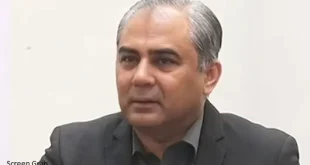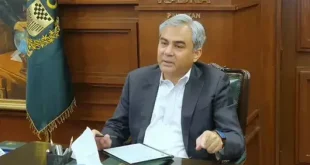Date: June 25, 2025 | By: NewsMakers Web Desk
Minahil Malik, a prominent Pakistani TikToker and digital influencer, has once again found herself at the center of a media storm after another explicit video surfaced online and rapidly went viral. The latest leak, reportedly showing the Karachi-based star in a compromising position during a private video chat, has triggered waves of criticism, mockery, and moral policing across Pakistani social media platforms.
But behind the outrage and sensationalism lies a deeper story—a story of vulnerability in the digital age, and the unchecked rise of cyber exploitation in Pakistan’s influencer culture.
From Viral Fame to Public Shaming
Minahil Malik’s rise to fame was swift. With millions of followers across TikTok, Instagram, and YouTube, she became a household name among Gen Z audiences. But as her popularity grew, so did the scrutiny of her personal life. Following a messy fallout with fellow TikToker “SK,” leaks of private videos began surfacing earlier this year. Despite reporting the breach to Pakistan’s Federal Investigation Agency (FIA) and pursuing legal action, new videos continue to emerge.
Sources claim that after the breakup, private conversations and content were weaponized—either for revenge or digital clout. While the identity of the leaker remains unconfirmed, the damage to Malik’s personal life, reputation, and mental health is visibly mounting.
When Privacy Becomes a Luxury
The latest incident has revived urgent conversations around digital privacy, cyber laws, and the treatment of women in online spaces. Influencers like Malik, regardless of their choices, are often judged far more harshly than their male counterparts. Instead of rallying around victims of privacy invasion, public discourse in Pakistan frequently veers into victim-blaming and character assassination.
Minahil’s case is not just about a leaked video—it’s about how Pakistan still lacks robust structures to protect digital content creators from online exploitation.
Beyond the Headlines: What We Must Learn
Rather than fixating on the scandal, this moment demands a cultural shift. The real question is: Why are such leaks allowed to go viral in the first place? Why are women influencers disproportionately targeted, and why does the conversation always question their morality instead of the abuser’s crime?
As the FIA continues its investigation, civil society must demand more than just arrests. Pakistan needs stronger data protection laws, faster cybercrime response systems, and most importantly—a shift in public attitude toward digital respect and consent.
Final Thought
Minahil Malik’s story is a cautionary tale—not just for influencers, but for every social media user. In a world where a private moment can become public within seconds, privacy is no longer just a right—it’s a battleground.




